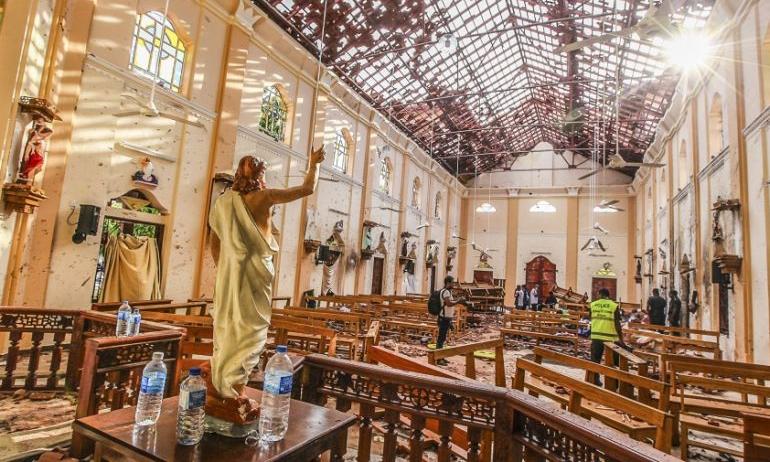
Rajapaksa's role probed in Easter bombings investigation in Sri Lanka
text_fieldsAccusations are intensifying against the former Sri Lankan government, headed by strongman president Gotabaya Rajapaksa, suggesting their involvement in obstructing an investigation into the country's worst terrorist attack, amid allegations of their involvement in helping the terrorist with their ulterior motives of returning to the power.
The Easter Sunday bombings in 2019 claimed the lives of 269 people, including eight British tourists, targeting churches and luxury hotels. Almost five years later, the investigation has yielded no concrete answers, and there have been no criminal convictions.
The allegations gaining traction suggest a sinister motive behind the attacks, pointing fingers at the Rajapaksa government for orchestrating the blasts to ensure a return to power. A recent documentary by Channel 4's Dispatches featured a whistle-blower claiming that the attacks were part of a larger plan to create instability in Sri Lanka.
The source alleged collusion between an intelligence officer linked to the Rajapaksa family and the local Islamist militant group, National Thowheeth Jama'ath (NTJ), responsible for the bombings.
The Rajapaksa family, known for ruling Sri Lanka with an iron fist, faced a setback in 2015 when Mahinda Rajapaksa was ousted amid allegations of corruption.
However, they plotted a comeback in the 2019 elections, this time with younger brother Gotabaya as the presidential candidate, ultimately succeeding. The whistleblower's revelations suggest a calculated effort over years to engineer an "unsafe" security situation, ensuring Gotabaya's rise to power.
The former director general of police, Ravi Seneviratne, who initially led the Easter attacks investigation, revealed that after Gotabaya Rajapaksa assumed the presidency, the government actively impeded the investigation.
Seneviratne's entire team was removed from the case, and travel bans were imposed on all 700 CID officers, creating an atmosphere of fear and intimidation. The motive behind these actions, according to Seneviratne, was to silence the investigators and prevent them from sending a message.
The targeting of those involved in the investigation took a dark turn when the attorney general disclosed a conspiracy to murder Shani Abeysekara, the former head of Sri Lanka's CID overseeing the investigation.
Abeysekara was abruptly removed when the Rajapaksa government came to power. A court petition filed by Abeysekara revealed a plan to stage a vehicle accident to assassinate him, with his involvement in the bombing investigation cited as a primary reason.
Despite more than 200 people being charged in connection with the attacks, no convictions have been secured, leaving families of the victims in anguish. Former president Maithripala Sirisena, in power during the attacks, was ordered by the Supreme Court to compensate victims, underscoring the government's failure to bring justice.
In response to the Dispatches revelations, the Sri Lankan government claimed to have established a special parliamentary committee to investigate the allegations. However, sources suggest that no one has been called to testify before it, raising questions about the government's commitment to transparency.
Cardinal Malcolm Ranjith, head of the Catholic church in Sri Lanka, has emerged as one of the most vocal critics, alleging a cover-up from the highest levels of government. He criticized the appointment of an individual by Gotabaya Rajapaksa to oversee the case, accusing them of making a mockery of transparency, accountability, and democracy.























